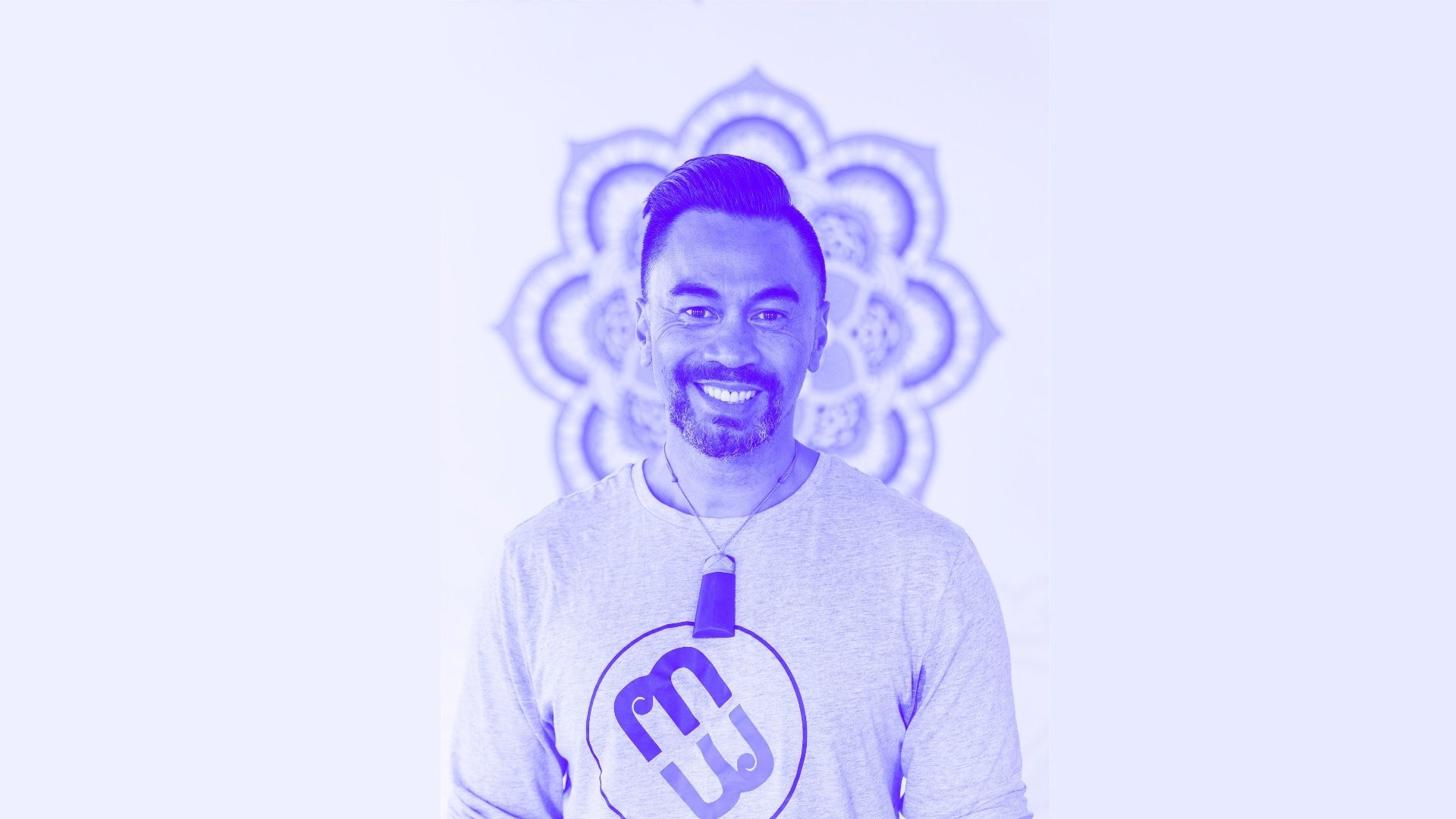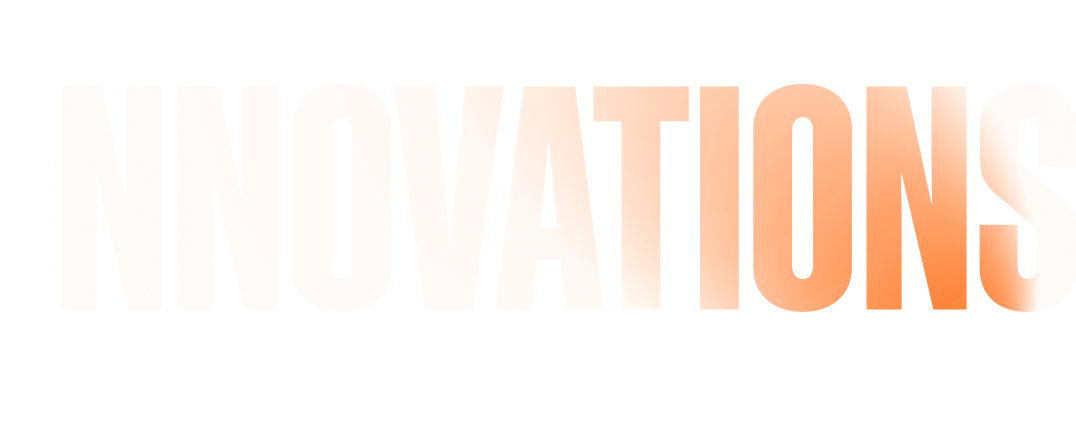Innovation - The Journey To Creating M3

Getting an opportunity to kōrero with the enigmatic Jase Te Patu has offered a deep dive into his work on creating M3 Mindfulness. Within a rich korero carried along by a healthy mix of laughter, some synchronised eye-rolling and plenty of finger applauding we swapped stories and reflections capturing the distinct experiences of being innovators in the mental health space and being Māori doing this in Aotearoa in these times.
Jase has been in the wellbeing industry for 30 years and describes where he is now as a different iteration of his expression of wellbeing in the continuum of his own journey to deepen and sit in himself. Yoga, a traditional wellbeing practice from India, was his starting point. When Jase started yoga it was all about the physical postures and being physically flexible and strong. This is common in many western approaches to yoga. Jase reflects on understanding for himself now that, ironically, this is not what yoga is all about. ‘Yoga is a physical practice for calming of the mind so you can be peaceful within yourself’. As his own practice shifted from the active aspect of yoga to the meditation aspect, his realization influenced him while in wānanga creating his yoga reo cards to find a Māori kupu that acknowledges his discovery. Pū Āio; connecting to the wellspring of peace within you, is the kupu Jase uses now to describe what he is practicing. Today he rarely engages in the physical active session of postures being accomplished and more focuses on sitting quietly for 15mins so he can access that Pū Āio within to start his day.
This shift in Jase’s practice has enabled his tuakiritanga, his ability to sit with himself comfortable within his own skin, with who he really is, to grow and strengthen. ‘The practice is sitting quietly with myself so I can connect, not only to myself but to tupuna, mātauranga and all that kind of stuff”. He is bringing this to rangaitahi in schools through M3’s Reo Tuakiri programme, something he describes as the language of one’s true being. Through this programme he is offering tools to deal with that outside world and the challenges it is bringing to them, so they can find a sense of peace within them and feel ok inside their skin.
People who meet Jase comment on how authentic he is, and for Jase this confirms for him all the work he has been doing on himself to drop away those layers of what used to fill up his inner world. ‘I care less what people think, that's how I know I've shifted and grown since my days as a performing artist where my job very much involved worrying about what other people thought of you and the attachment to the gratification of someone else’s applause. Now im more at peace in myself’.
Jase reflects on his own ‘blessons’, the blessings uncovered through his own harsh lessons, that eventually taught him the value of mindfulness. While being a dancer who prided himself on knowing his body so well as part of his profession, he broke it from pushing it too hard. This caused him to lose that career he had been pushing himself so hard to achieve. It also brought him to discover yoga to support him on his healing journey from depression. This was his ‘blesson’. ‘Thats why im so passionate about wellbeing, and so passionate about being well, because I know what it feels like to be well and I know when I am being well my mahi and everything else is being done well’.
Jase reflects that this journey as an ‘innovator’ has, for him, been a weaving of his personal journey alongside the journey of M3. Beginning working with Les Mills and then running his own yoga studio, Jase has already developed a public persona or profile in the wellbeing industry. He was often found headlining as a yoga teacher at festivals and venues. Then there is M3. This is also where Ember Innovations and Jase connect.
In September 2021, Ember Innovations approached Jase about a partnership. The partnership aimed at providing practical tools for rangaitahi to improve their mental and emotional health. As our key contribution to the partnership, Ember Innovations gifted it’s evidence-based resilience programme, Mindsets, to M3. We believed that Jase and his team were the best people to scale this carefully developed programme's impact right across Aotearoa! Ember Innovations shared our trained facilitators with M3 and also matched Jase with a business mentor, who has proved extremely helpful in supporting the development of his business model. Now, this business mentor is the Founder and CEO of M3, ready to navigate the start-up forward.
While these 2 kaupapa were operating parallel to each other over the past four years, Jase acknowledges that slowly they have been integrating within him as he has grown into his tuakiritanga and reconnects more to his Māoritanga. Gradually he has recognised that M3, the mindfulness programme, and Jase Te Patu, the public personality, are saying the same thing. With a sense of opening himself to the abundance of what is possible Jase remarks on how he now feels at ease promoting M3 and his own brand together, as he did on 7sharp recently (https://drive.google.com/file/d/1jNFriN9PfcNUNK5V_NEYIE2Ts6dLZfoQ/view?usp=share_link )
This deep connection between personal insight and innovation mahi is something we discover we hold in common and reflect on this as Māori innovators in the mental health sector. Lived experience and the insight and tools gathered that we are inspired to translate into a functional mode of sharing with whānau and hāpori and other’s, is it this extending out of our own challenges and triumphs to bring service to our communities that reflects our Māoritanga? I reflect on this following a recent Māori design hui I attended where several of us articulated our felt sense of what makes our creative and design mahi ‘ Māori’. Around the room of Māori practitioners there was general consensus that our creativity has a function and service beyond our individual need or desire back out to our communities and all we are in relationship to, including whenua and te taiao. This priority is what makes our mahi feel Māori. The reciprocity in enlivening our whakapapa as we are enlivened by it provides the pathway of circular flow and prioritises investing in relationality. This guides us as Māori through our own experiences and mahi to apply our skills to have a direct and purposeful connection to whomever we are in relationship to ki Te Ao Marama katoa, in the whole living world.
When we experience today our kuia and kaumātua bantering in competition over who is taking the most pills from the doctor or who has the most health ailments to address, Jase believes this is a tohu for us to re-consider where we are putting our focus for our health as Māori and where this focus is actually taking us in terms of our personal health experience as well as the statistics that capture these experiences as tangata whenua on our ancestral lands. Historically entrenched in a Pākeha model and system of health has not done well for Māori, as the research confirms. Being mindful of what we focus on for ourselves as Māori in terms of our health becomes essential for the survival of our people and culture.
Being healthy is mahi, as Jase acknowledges, it takes effort and commitment to get well and requires constant effort. It is the journey going inward, finding who he really is without the ‘identity’ of who he thinks he should be that has been the blessing. While not an easy journey, it took him to a pivot point that shifted him to a different pathway. In turn, this brought Jase to where he is now. And he is feeling truly blessed and grateful as M3 continues to get support to grow and expand, and he gets to share the tools and ways that helped him get well again and that he still uses every day to maintain his wellness while building his new business, M3.
M3 started with a focus on just primary school children through a series of online videos that people had to subscribe. “And then covid happened” so Jase decided to make them available for free to support whānau, tamariki and teachers during lockdowns. This then led him to doing workshops for primary school teachers to support them with tools to respond to behavioural challenges with students coming back to the classroom from lockdowns. Teachers then responded from the early childhood sector, so Jase and so Jase then developed some vids for early childhood environments. Then the call for secondary school-focussed programmes came and Jase continued to respond to the needs in our schools. From this M3 has evolved to now being a rounded programme that includes all facets of a school Community. Starting with the teachers, they then work for 15 weeks with Rangaitahi, who then move forward to share what they have learnt in local early childhood centres or primary schools. This tuakana-teina approach is an exciting evolution to align M3 with more of a Māori approach to knowledge sharing. Engaging with local pūrākau is also a new element that M3 is evolving into its approach to connect with local mātauranga
This evolution in M3 is mirrored again in Jase’s own journey re-connecting to his whakapapa, to his reo. M3 and Jase have been evolving to include and embed more of a kaupapa Māori approach; moving away from yoga and towards a kapa haka-based movement approach and involving pūrākau. M3 has now moved into Māori-medium kura and is currently booked into 80 schools around ngā motu ( the north and south islands of Aotearoa) for 2023. M3 is now ‘more aligned, more authentic to who I am and how I want to share these tools’.
In a sense being Māori innately has an attunement with being innovative; like our tupuna, who travelled from warm climates of the Pacific to this different island climate of Aotearoa and had to be innovative in adapting their ways to this whenua. Jase reflects on a sense of misalignment between Te Ao Māori and this concept of ‘innovation’ in today’s context. Māori aren't so much creating something ‘new’ but are more so remembering and reconnecting to knowledge that has already been gathered by tupuna. I tautoko Jase’s kōrero. As Māori today, we need we are needing to be innovative in how we enliven our matauranga tuku iho(traditional knowledge) in this modern shifting world of Te Ao Hurihuri. “Our pūrākau, te hā, karakia are all practices of Mauri Tau, of mindfulness, giving us felt connection to now, to something greater then ourselves, and to who we really are on the inside that is connected to tupuna and to Atua”.
The path as a Māori innovator is not easy though. “I've had challenges from both sides, Māori and Pākeha; ‘Meditation or mindfulness is colonial’,’ am I Māori enough’, ‘am I selling out or being culturally inappropriate’?”. Navigating the translating of our inherited worldviews between Pākeha and Māori worlds and in Jase’s case also Indian or Vedic worldview is a huge challenge and requires quite an effort to respond and tend to. It's another job tagged on, in a sense, to the mahi we do and something I hear many Māori acknowledging across the country, this effort to translate Te Ao Māori across tau iwi cultures that live now on this whenua with us. All the while continuing to process and restore the negative impacts colonisation has had on our knowledge systems and how we live with them in this modern world and Pakeha-dominant society and systems.
“Sometimes I feel more judged by Māori than by Pākeha as Pākeha generational attitudes shift to be open and supportive to Te Ao Māori and to learning about mātauranga Māori, whereas Māori are still healing from the negative impacts of colonisation to be able to trust moving forward, Māori focus is on remembering mātauranga tuku iho, so there is resistance to new expressions or ways of being or experiencing our mātauranga. Each generation have also experienced different things, and so the trauma is there, and they are still unpacking it”
At the end of the day, all these ripples and waves are part of the journey in navigating ourselves forward. “I've had to trust that at the heart of it, my intentions is to help people, Māori and not just Māori but everyone. We talk about kotahitanga, whanaungatanga, manaakitanga and these concepts are all-inclusive, they include everyone”. Having progressed and evolved different content for specific focus groups M3 has expanded rapidly in its capacity to deliver to whole school communities.

